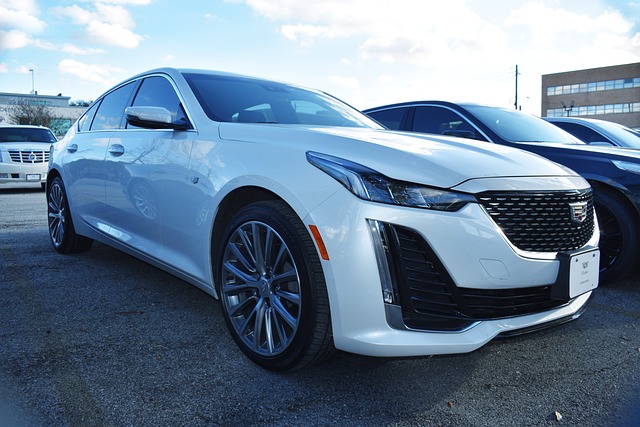Why Opting for a Used Car is Wise for the Environment-conscious

In today’s world, where environmental concerns are becoming increasingly prevalent, making eco-conscious choices has never been more important. One area where individuals can have a significant impact on the environment is in their choice of transportation. While electric and hybrid vehicles are often touted as the go-to eco-friendly option, buying a used car can be a smart choice for eco-conscious consumers. In this article, we’ll explore why buying a used car is a sustainable and environmentally friendly decision.
1. Reduced Carbon Footprint
When you buy a new car, it may seem like you’re getting a clean slate in terms of emissions. However, the manufacturing process of new vehicles is far from eco-friendly. Producing a new car involves extracting raw materials, manufacturing processes, which are highly energy-intensive, and transporting parts, all of which contribute to a substantial carbon footprint.
On the other hand, buying a used car means that you’re essentially recycling an existing vehicle. By opting for a pre-owned vehicle, you help reduce the demand for new car production, which, in turn, reduces the associated emissions and resource consumption. In essence, you’re extending the life of a vehicle and preventing it from prematurely ending up in a landfill.
2. Lower Energy Consumption
The energy required to manufacture a new car is significantly higher than that needed to maintain and repair a used one. According to studies, the energy consumed in the production of a new vehicle is often equivalent to several years’ worth of the energy used during its operation. When you purchase a used car, you contribute to lower overall energy consumption in the automotive industry.
Moreover, the recycling and refurbishing of used cars consume fewer resources compared to manufacturing new ones. Choosing to buy a used car is akin to opting for a greener, more energy-efficient option that aligns with eco-conscious living.
3. Reduced Chemical Emissions
New cars come with a host of chemicals and materials that can off-gas and release harmful volatile organic compounds (VOCs) into the environment. These chemicals can have detrimental effects on air quality and contribute to pollution. In contrast, older cars have already gone through the phase of off-gassing, which means they typically emit fewer chemicals and pollutants.
By choosing a used car, you’re indirectly reducing the release of harmful chemicals into the atmosphere. This is particularly important for eco-conscious consumers who prioritize clean air and want to minimize their contribution to air pollution.
4. Extended Vehicle Life
One of the most eco-friendly actions you can take is extending the life of a product. The longer you use a car, the more sustainable your choice becomes. New cars are often traded in or replaced after just a few years, contributing to a cycle of excessive consumption and waste.
Used cars, however, have already proven their durability and longevity. When properly maintained, they can serve their owners for many years, reducing the need for constant replacements. This not only saves you money but also reduces the overall environmental impact of your vehicle choice.
5. Lower Financial Impact
Choosing a used car can also have a positive impact on your finances, which, in turn, can support your eco-conscious lifestyle. New cars depreciate very quickly in the first few years after purchase, losing a significant portion of their value. This depreciation hits your wallet hard and can result in higher insurance premiums and property taxes.
Used cars, on the other hand, have already gone through the majority of their depreciation curve. This means you can often purchase a high-quality used vehicle for a fraction of the price of a new one. The money you save can be invested in other eco-conscious choices, such as energy-efficient home improvements or sustainable travel options.
6. Availability of Fuel-Efficient Models
If fuel efficiency is a key factor in your eco-conscious choice, you’ll be pleased to know that there is a wide range of used cars available with excellent fuel economy. Many older models have fuel-efficient technologies that can rival or even surpass the efficiency of newer vehicles. These vehicles not only save you money at the pump but also reduce your carbon footprint by consuming less fossil fuel.
7. Support for Sustainable Practices
By buying a used car, you indirectly support sustainable practices in the automotive industry. As the demand for new vehicles decreases, manufacturers may be incentivized to explore more environmentally friendly production methods and materials. Additionally, the automotive recycling industry, which relies on used cars, plays a crucial role in reducing waste and conserving resources.
8. Reduced Packaging Waste
When you buy a new car, it comes with a significant amount of packaging materials, from plastic wraps to protective covers. These materials, while essential for protecting the vehicle during transportation and delivery, often end up in landfills. Used cars, on the other hand, don’t come with the same excess packaging, which helps reduce waste in the long run.
9. Lower Insurance Costs
Another financial benefit of choosing a used car is the potential for lower insurance costs. Insurance premiums are typically based on the value of the vehicle, and since used cars have already depreciated, they are less expensive to insure than new cars. This can save you money while aligning with your eco-conscious values.
10. Customization and Personalization
Used cars offer the opportunity for customization and personalization. Instead of purchasing a factory-made new vehicle, you can buy a used car and modify it to suit your specific needs and preferences. This reduces the demand for new, mass-produced cars and encourages a culture of reusing and repurposing existing resources.
Final Thoughts
In a nutshell, buying a used car is a smart choice for eco-conscious consumers for various reasons. It reduces your carbon footprint, lowers energy consumption, minimizes chemical emissions, extends vehicle life, and has a positive financial impact.
Furthermore, it supports sustainable practices in the automotive industry, reduces packaging waste, and allows for customization and personalization. By opting for a used car, you can make a meaningful contribution to environmental preservation while enjoying the benefits of a reliable and eco-friendly mode of transportation.
So, the next time you’re in the market for a vehicle, consider going green by choosing a used car. Your decision will not only benefit the planet but also your wallet and personal satisfaction in living a more eco-conscious lifestyle.
